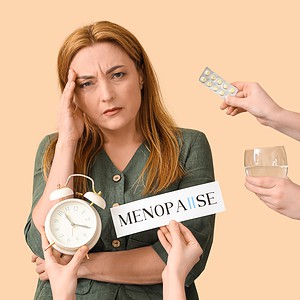Published on 12th February 2019
A lack of nutrition knowledge and a rise in food-related fake news on social media are thwarting efforts to eat a healthy, balanced diet, according to research commissioned by The Institute for Optimum Nutrition (ION).
In a survey of 2,001 UK adults, almost half (49 per cent) of respondents said they would like to have a better understanding of nutrition, and 26 per cent said they find nutritional advice confusing and conflicting. When seeking nutritional advice, 21 per cent of those surveyed admitted to turning to social media as a source of information, despite many social media sites containing fake news and unproven advice. Seventy-eight per cent of respondents acknowledged the importance and value of nutrition to every day wellbeing, while 45 per cent understood that nutrition impacts their health; 33 per cent of those surveyed also identified that nutrition affected mental health.
With unreliable nutritional advice appearing on social media newsfeeds, it can be challenging to obtain accurate and reliable information. To add some clarity, Mike Murphy, a registered nutritional therapist at Saffron Wellness Ltd and health lecturer at ION, busts some of the most common food myths, and offers tips on how to seek out the most reliable nutritional advice.
Myth 1. Eating fat makes you fat…
“In fact, the opposite can be true. Low-fat diets are ineffective at long-term weight-loss. Our brain is more than 60 per cent fat, and the fat in our diet helps to promote satiety and a more stable metabolism. The trick is to focus on healthy fats such as those found in nuts and seeds, oily fish like salmon or mackerel as well as extra virgin olive oil; and to not eat these fats in the presence of too many starchy carbs.”
Myth 2. We need to drink milk for strong bones…
“Whilst it’s true that dairy products are high in calcium, so too are many other foods; dark leafy green vegetables such as kale have comparable calcium levels while sesame seeds contain more than eight times the calcium of cow’s milk, and both these sources are also richer in magnesium and vitamin K which are also needed for strong bones.”
Myth 3. Eggs are bad for my cholesterol…
“Although egg yolks are high in dietary cholesterol, they are chock-full of important nutrients and the advice to restrict their consumption has now been eliminated because they don’t actually raise your blood cholesterol much. Cholesterol is one of the most important biochemicals in the body and only a small amount comes from our diet – most of the cholesterol we need is made by our liver and consuming eggs has actually been shown to improve HDL (good) cholesterol.”
Myth 4. Red meat is bad for you…
“Meat has been getting a lot of bad press lately. Putting the environmental argument aside, the World Health Organisation have labelled red meat as a ‘probable’ carcinogen to humans. They use the word ‘probable’ because the studies don’t separate all the other factors that can be involved in cancer development, like a lack of fruit, vegetables and fibre intake as well as exercise and smoking and alcohol consumption. The main issue is with cured, smoked and processed meats which can contain chemical compounds (nitrosamines and polyaromatic hydrocarbons) that have been found to damage DNA that could potentially initiate the cancer process. So if eating less red meat is on your agenda, for whatever reason, start by cutting back on the cured, smoked and processed forms and when you do eat meat, stack your plate high with vegetables and don’t worry too much.”
Myth 5. Salt is bad for you…
“Sodium is an essential mineral that we cannot survive without. The problem is when we eat too much of it, as studies do link high salt intake to high blood pressure. The real issue though is the source of salt in our diets. Many processed foods are very high in salt and so people who consume too much salt are typically guilty of consuming too many processed foods which are generally unhealthy and lack nutrients. If we base our diet mostly around unprocessed foods we don’t have to worry about salt.”
Tips on how to seek out reliable nutrition information…
- “Current government guidelines around diet, health and wellbeing haven’t been updated much over the last 20 years and they are now past their use-by date in many respects. The British Association for Nutrition and Lifestyle Medicine (BANT) have published a set of wellbeing guidelines based on the most well-researched and up- to-date information available. These guidelines provide easy-to-understand and meaningful information to the public and can be accessed here: http://bant.org.uk/about-nutritional-therapy/bant-wellbeing-guidelines/“
- “For those that want to go deeper, one of my favourite websites for reliable and up-to-date nutrition information is the Linus Pauling Institute https://lpi.oregonstate.edu/mic. Here you’ll find everything from facts on specific nutrients to disease prevention as well as links to all the government agencies around nutrition.”
- “Optimum Nutrition magazine is a free online e-magazine [also available in print] for those interested in the latest news and research around nutrition and its impact on health and wellbeing. It also has some great recipes and is absolutely worth subscribing to: https://www.ion.ac.uk/Pages/News/Category/optimum-nutrition-magazine.”
- “Lastly, it’s important to realise that when it comes to nutrition, there is no one size fits all. Although general guidelines can be very helpful, not everyone is starting from the same position and we’re all somewhat unique in our nutritional requirements depending on our genes, our environment and our current state of health. If you need individualised nutrition advice, consider consulting a registered nutritional therapist who has undertaken all the necessary training to understand the theory and practice of individualised nutritional therapy http:/bant.org.uk/about-nutritional-therapy/choosing-a-practitioner/“
Read more articles and recipes






